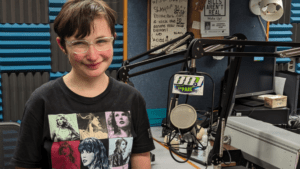In June 2007, I graduated from high school. It was an amazing time for me. The majority of my classmates and I were off to great new beginnings. My new beginning began at Seton Hall University. “This is going to be great!” I thought to myself on many occasions before the first day of classes.
Before this day happened however all new incoming freshman had to attend a summer “Orientation Period.” During this period we would have the chance to spend the night in the freshman dorms, receive our laptops and also get to meet several faculty members at the school. In addition to this, I had one additional separate meeting that most of the other freshman didn’t – an accommodation meeting with The Director of Disability Support Services at SHU. This is when the ball dropped for me.
During the meeting I learned many intriguing and frightening things about how college was going to be a huge difference from high school; the main difference for me was going to be “The IEP.” When I asked what the difference would be, I was told the difference was I would not have one. I can’t believe I was that oblivious that this was going to happen. Later, I learned that under the Individuals with Disabilities Education Act (IDEA) the IEP only exists K-12th grade. At the college door you get a Section 504 accommodations plan.
In college, you only receive “reasonable accommodations” to help make the classes accessible to those specific students with disabilities. The bottom line: there is no plan for you. The only way to receive what you need is by being independent and advocating for your needs. But what does anyone need? If you are a freshman and have autism how do you explain what you need?
At times, this led to many distractions that never would have occurred when I was younger. Sometimes I thought it was unfair. I had to advocate for my own single room in the dorms due to my social complications, extended time on tests for my reading comprehension, a note taker for my classes due to my lack of motor skills and many other complications. For someone trying to fit in it seemed like it was designed to make you stand out like a sore thumb. It even seemed as if as soon as I accomplished one of these tasks, the next semester would begin and it would start all over again for my new courses which required different accommodations.
When you add this to managing a full course load, trying to socialize with your fellow peers, along with being involved in extra-curricular activities, it can sometimes feels like you are drowning. I mean, “reasonable accommodations” are supposed to help level the playing field, not hinder you in any way. There isn’t a “reasonable accommodation” for that.
Although getting accommodations sometimes was daunting, I was still able to get by and will be going through the same process again with Disability Support Services come this September in my senior year at Seton Hall. For several semesters now I sit up front and tape most of my classes and download the recordings onto my computer, instead of utilizing a note taker. Never would have thought of that freshman year. For those reading who are younger and not yet in college, my advice is to sit in on as many IEP meetings as you can. Learn and ask as many questions as possible. The letters after your diagnosis don’t tell you if you need extended time or a note taker, but knowing if you are a visual or auditory learner may. Within this I would also strongly consider letting your parents be involved in some of your early decision making, especially when it includes freshman year accommodations. Independence is not grown over night and we all need that added voice sometimes to make sure we are level-headed and knowing exactly what we are getting ourselves into.
As many say early intervention is the key once first diagnosed, early intervention for those on the spectrum in college (and high school for that matter as well) is the key to ultimate success. What I’ve noticed about autism over the years is that it’s not a weakness unless you let it become one. Don’t let it hinder you. Let the advantages of who you are and what you have to offer be your ability to make it at the college level; just always know what your weaknesses are so you can be ready for whatever is to come next!














